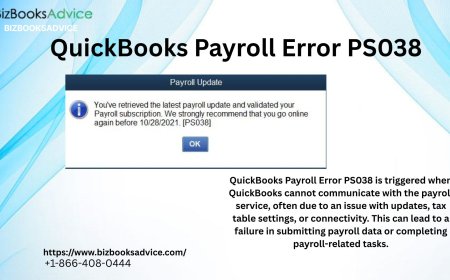Understanding Student Loans Refinancing: A Complete Guide for Graduates
Explore how student loans refinancing works, its benefits, risks, and key factors to consider before deciding. Learn how refinancing can ease your financial burden after graduation.

Higher education can open doors to global opportunities, but it often comes at a significant cost. For many graduates, repaying student loans becomes a long-term financial responsibility. This is where student loans refinancing steps in as a potential solution.
If you're juggling multiple student loans with varying interest rates and repayment terms, refinancing may help streamline payments and reduce financial stress. But before diving into it, it's crucial to understand how it works, its pros and cons, and whether its the right option for you.
What is Student Loans Refinancing?
Student loans refinancing involves replacing your existing student loans with a new loan, ideally with better terms. When you refinance, a new lender pays off your old loan(s), and you begin repaying the new one under a revised interest rate and repayment plan.
Its an especially attractive option if your current loan has a high interest rate or rigid terms, and your credit or income situation has improved since you first borrowed.
How is Refinancing Different from Consolidation?
Though often used interchangeably, refinancing and consolidation differ.
-
Consolidation typically refers to combining multiple federal loans into one for simplified payments but it doesnt always offer a lower interest rate.
-
Refinancing, on the other hand, allows you to get a new loan with potentially lower interest based on your financial profile, but often converts federal loans into private ones, meaning you may lose federal protections.
Who Should Consider Student Loans Refinancing?
Refinancing isnt for everyone. Its best suited for:
-
Graduates with stable income: If youre earning consistently and have job security.
-
Borrowers with high interest rates: Especially if your original loan carries double-digit interest.
-
People with strong credit scores: The better your credit, the more favorable the refinancing terms.
-
Those who dont need federal protections: Like income-driven repayment or public service loan forgiveness.
If youre confident that you can manage without government support options, refinancing may be a great way to save money.
Key Benefits of Refinancing
-
Lower Interest Rates
If market conditions or your financial standing have improved, refinancing may help you lock in a lower rate, saving thousands over the loans term.
-
Reduced Monthly Payments
Extending your repayment term can reduce your EMI, making it easier to manage monthly expenses.
-
Simplified Repayment
Refinancing can combine multiple loans into one, giving you a single due date and reducing payment confusion.
-
Custom Loan Terms
You get to choose a term that suits your current financial goals whether its early payoff or longer-term flexibility.
-
Change Your Co-signer
Refinancing allows you to release your original co-signer or add a new one with a better credit profile.
Potential Drawbacks
-
Loss of Federal Benefits
Refinancing federal student loans with a private lender means losing access to benefits like deferment, forbearance, and income-driven plans.
-
Not Everyone Qualifies
Lenders may have strict credit and income requirements, making approval difficult for some borrowers.
-
Variable Interest Rates Can Rise
While variable-rate loans may start low, they can increase over time, leading to higher repayments.
-
Fees and Costs
Some lenders may charge origination or processing fees although many waive these to attract customers.
Eligibility Criteria
To qualify for student loans refinancing, most lenders look at:
-
A minimum credit score (typically 650700+)
-
A steady income and low debt-to-income ratio
-
A completed degree (some lenders require a graduation certificate)
-
A valid repayment history with no recent defaults
If your credit score isnt high enough, applying with a co-signer can improve your chances.
What Documents Are Required?
Refinancing is similar to applying for any loan. Lenders typically ask for:
-
Proof of identity and address
-
Proof of income or employment
-
Your current loan details
-
Your credit report
-
Degree certificate or graduation proof
Having these ready can speed up your application process.
When Should You Refinance?
Timing matters. The ideal moment to refinance is when:
-
Youve completed your education
-
You have a stable job and income
-
Interest rates are low
-
Your credit score has improved
-
You no longer need federal loan benefits
Remember, its possible to refinance more than once if better offers come your way later.
How to Choose a Lender
Before choosing a lender for student loans refinancing, compare the following:
-
Interest rate options (fixed vs. variable)
-
Repayment terms and flexibility
-
Penalties or prepayment charges
-
Customer service ratings
-
Online tools and support
Use online calculators to estimate savings before making the switch. Small changes in interest rates can result in big savings over time.
Final Thoughts
Student loans refinancing is a valuable tool that can help simplify your financial life and potentially save a substantial amount on interest. But like any major financial decision, it requires careful consideration.
Make sure refinancing aligns with your current income, credit profile, and long-term financial goals. Dont rush the process explore your options, understand the trade-offs, and choose a plan that supports both your present needs and future ambitions.
If done right, refinancing can transform your student loan repayment experience from a stressful burden into a manageable journey toward financial freedom.








































